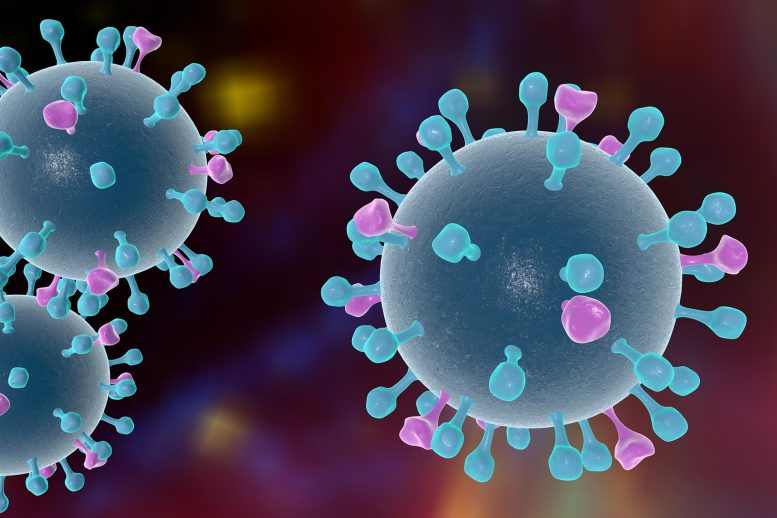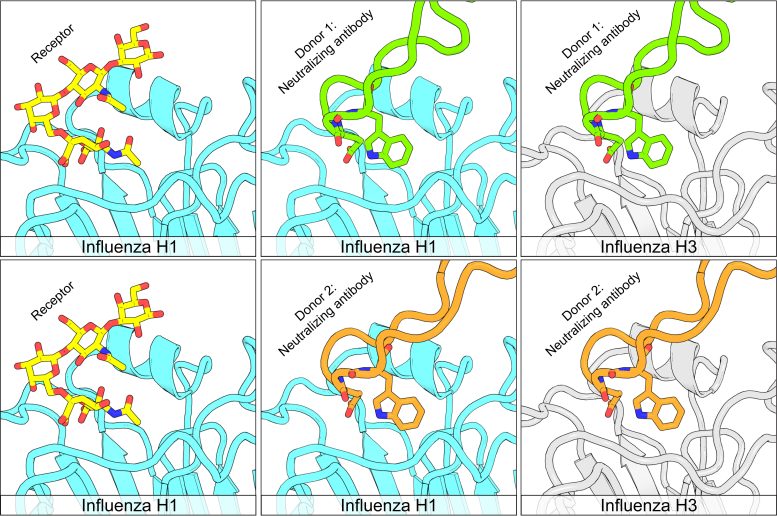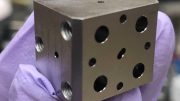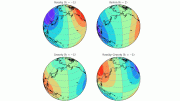
Researchers have discovered a new class of antibodies capable of neutralizing various flu virus strains, potentially aiding in the development of more broadly protective flu vaccines. This breakthrough, to be published in PLOS Biology, emphasizes the importance of diversifying flu vaccine production methods and provides new avenues for vaccine design.
The findings may assist in creating vaccines that offer wider protection against various flu strains.
Researchers led by Holly Simmons from the University of Pittsburgh School of Medicine have discovered a new class of antibodies that show potential in neutralizing various types of influenza viruses. This significant advancement, which might aid in the creation of more universally effective flu vaccines, was recently published in the journal PLOS Biology.
A flu vaccine prompts the immune system to make antibodies that can bind to a viral protein called hemagglutinin on the outside of an invading flu virus, blocking it from entering a person’s cells. Different antibodies bind to different parts of hemagglutinin in different ways, and hemagglutinin itself evolves over time, resulting in the emergence of new flu strains that can evade old antibodies. New flu vaccines are offered each year based on predictions of whatever the most dominant strains will be.
Research on Broad Spectrum Flu Vaccines
Extensive research efforts are paving the way to development of flu vaccines that are better at protecting against multiple strains at once. Many scientists are focused on antibodies that can simultaneously protect against flu subtypes known as H1 and H3, which come in multiple strains and are responsible for widespread infection.

Humans mount convergent H1N1-H3N2 neutralizing antibody responses to influenza virus. Panels are derived from structures reported by Simmons et al., (PDB 7TRH, 7RRI and 3UBE by Xu et al., for the model of receptor engagement). Credit: Kevin McCarthy (CC-BY 4.0)
Simmons and colleagues homed in on a particular challenge in this endeavor—a small change found in some H1 strains in the sequence of building blocks that makes up hemagglutinin. Certain antibodies capable of neutralizing H3 can also neutralize H1, but not if its hemagglutinin has this change, known as the 133a insertion.
Now, in a series of experiments conducted with blood samples from patients, the researchers have identified a novel class of antibodies capable of neutralizing both certain H3 strains and certain H1 strains with or without the 133a insertion. Distinct molecular characteristics set these antibodies apart from other antibodies capable of cross-neutralizing H1 and H3 strains via other means.
Implications for Flu Vaccine Development
This research expands the list of antibodies that could potentially contribute to development of a flu virus that achieves broader protection through an assortment of molecular mechanisms. It also adds to growing evidence supporting a move away from flu vaccines grown in chicken eggs—currently the most common manufacturing approach.
The authors add, “We need annual influenza virus vaccines to keep pace with continuing viral evolution. Our work suggests that the barriers to eliciting more broadly protective immunity may be surprisingly low. Given the right series of influenza virus exposures/vaccinations, it is possible to for humans to mount robust antibody responses that neutralize divergent H1N1 and H3N2 viruses, opening new avenues to design improved vaccines.”
Reference: “A new class of antibodies that overcomes a steric barrier to cross-group neutralization of influenza viruses” by Holly C. Simmons, Akiko Watanabe, Thomas H. Oguin III, Elizabeth S. Van Itallie, Kevin J. Wiehe, Gregory D. Sempowski, Masayuki Kuraoka, Garnett Kelsoe and Kevin R. McCarthy, 21 December 2023, PLOS Biology.
DOI: 10.1371/journal.pbio.3002415
The research was supported by National Institute of Allergy and Infectious Diseases Program Project Grant P01 AI089618 (to G.H.K.) and funds from the University of Pittsburgh Center for Vaccine Research (to K.R.M).









The COVID pandemic has forever changed my perception of vaccines and the entire medical industry.
My household refused the COVID vaccine but other members of my extended family did not.
Now in the past year my brother in law died and my mother in law formed aggressive cancer and after multiple rounds of chemo and treatment it keeps coming back.
Now shes having surgery to remove cancerous body parts but the outlook is not good.
Coincidence? Maybe
Correlation? Absolutely